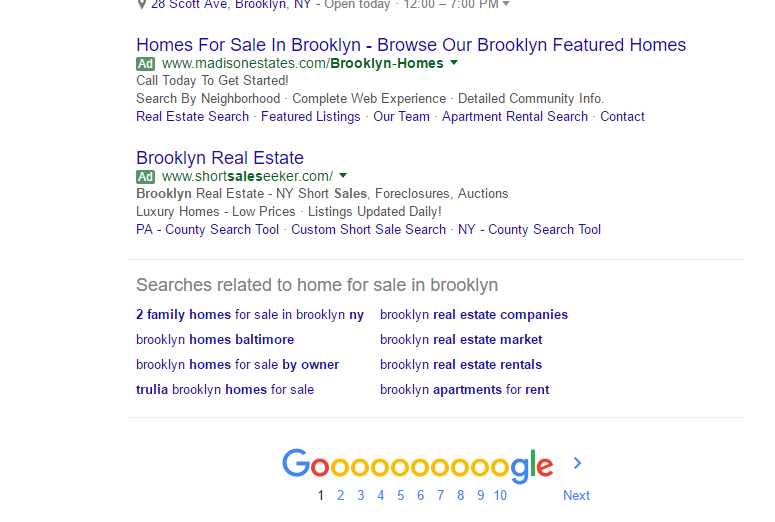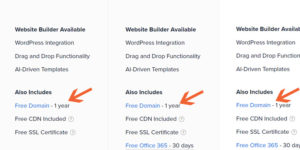If you are relying only on Google Keywords Planner tool to find keywords for your real estate website, you will most likely be thrashed by your competitors in the game of gaining organic traffic and new leads for your business.
Your brand needs to be found on the top of search engine results in order to capture the attention of home buyers and sellers who are using search engines while looking for relevant information. How you conduct keyword research for your real estate website can actually make or break your success in the online marketing world.
[optinform]You need to think out of the box and rank for keywords that your prospects are typing into Google when they look for information related to buying or selling properties.
Though keyword research is not rocket science, there are a few things you need to know to ensure that you aren’t leaving a lot of ‘traffic’ on the table by limiting yourself to only Google Keyword Planner tool.
While its’ the primary and most trustworthy tool to search for keywords for your real estate website, you can get a bit more creative and come up with keywords that may not be closely related to your business, but can drive the right kind of traffic to your website. These are lateral keywords that Google Keyword Planner won’t suggest.
So how do you come up with these keywords? Let’s find out:
Understand long-tail keyword
Long-tail keyword has become an SEO industry buzzword these days and rightly so.
Before we discuss how you can take advantage of amazingly easy-to-rank-for long tail keywords in your real estate business, let’s first try to understand what long tail keywords actually are.
You probably already know that keywords like “homes for sale in…’, ‘home prices in…’ etc. are very difficult to rank for. Major players in your niche may be spending millions of dollars on SEO to rank for these keywords.
However, there are less competitive, but highly effective keywords that you can find to improve your chances of ranking on the front page of Google.
In the majority of cases, these are long-tail keywords.
Long tail keywords, as the name suggests, are usually longer (5+ words), but very specific keywords.
Take for example someone who is trying to find an apartment in NYC.
You may assume that he or she will type ‘apartment for sale in NYC’ into Google and hit search. But it’s just one of the keywords that she can type into Google. They are many alternatives.
Most buyers have more specific location than NYC in mind. Besides they also have a specific budget. So it’s possible that your prospect type:
Downtown Manhattan apartment for sale under $500,000
Or
Apartment for sale in downtown Manhattan NYC under $500,000
Or
Two-bedroom, cheap apartment for sale in downtown Manhattan NYC
Now, these keywords may not be very competitive in your area. Head over to Google Keywords Planner now and try to find the search volume for these keywords.

Don’t get disheartened if you find that only a dozen people search this keyword every month. Actually, people using these keywords may be highly motivated buyers that can quickly become great leads for your business.
One of the main advantages of targeting long tail keywords is that they are easy to rank for due to less competition. Besides, they provide more qualified leads than broad keywords like homes for sale or houses for sale.
Since long tail keywords contain the primary keywords as well, they contribute greatly to improving the overall SEO of your real estate website.
Instead of targeting only long-tail keywords, you can combine them with your primary keywords.
Understand user intent while doing keyword research for your real estate website
Do home buyers and home sellers search for information related to only buying or selling homes? Absolutely not.
You already know that home is the most expensive purchase in most people’s lives. When people buy homes, they not only look for information related to buying, but also how there life is going to be thereafter. So they will look for information on an array of topics. Some of these topics are:
- Relocation
- Good schools
- Medical facilities
- Communities
- Crime rate in their target area
- Amenities
- The prospects of appreciation in property values
You can target keywords related to these topics.
It is possible that the majority of traffic you get by ranking for these keywords is not relevant, but you can still receive qualified leads from time to time, or at least drive traffic to your website. If nothing else, the increased traffic will surely help your website rank higher in search engines.
Use smart alternatives to Google Keyword Planner
As I have already mentioned that Google Keyword Planner is the primary tool you can use to find keywords for your real estate website, but you should not rely only on this tool. Here is what you can do to find highly effective keywords:
- Pick a primary keyword and put it in Google search. You will get results for that primary keywords, but you should scroll down to the bottom of the page. You will find searches related to your keywords. Usually, there would eight suggestions. Find out the search volume for each of the eight search terms in Google Keyword Planner tool.

- There are some great alternatives to Google Keyword Planner that you can use. One of these alternatives is Ubersugest. You can get tons of keywords based on the website’s keyword search alphabetically. You should always check with Google Keyword Planner before choosing a keyword from Ubersuggest to know what the search volume for the particular keyword is. You should do it with each keyword search tool I am suggesting here.
- Some other alternatives are Wordpot, Soovle, Bing Keyword Tool, YouTube Keyword Tool, Wordstream Keyword Tool, Wordtracker and HubSpot Keyword SEO Tool. Some of these are paid tools, but they could be a great arsenal in your online marketing efforts.
The bottom line
So these are some of the basic steps you can take to find great keywords for your real estate website. The bottom line is to be as specific and local as possible when conducting a keyword research.
In the majority of cases, real estate business is hyper local. You can target keywords for each community you serve and easily rank for them because they are going to be less competitive.
Let me know in comments if you can add something to the list of keyword research secrets I have mentioned in the blog.





![Best hosting for real estate websites [2024 update]](https://realtycrux.com/wp-content/uploads/2019/04/best-hosting-for-real-estate-website-300x144.jpg)

Leave a Reply